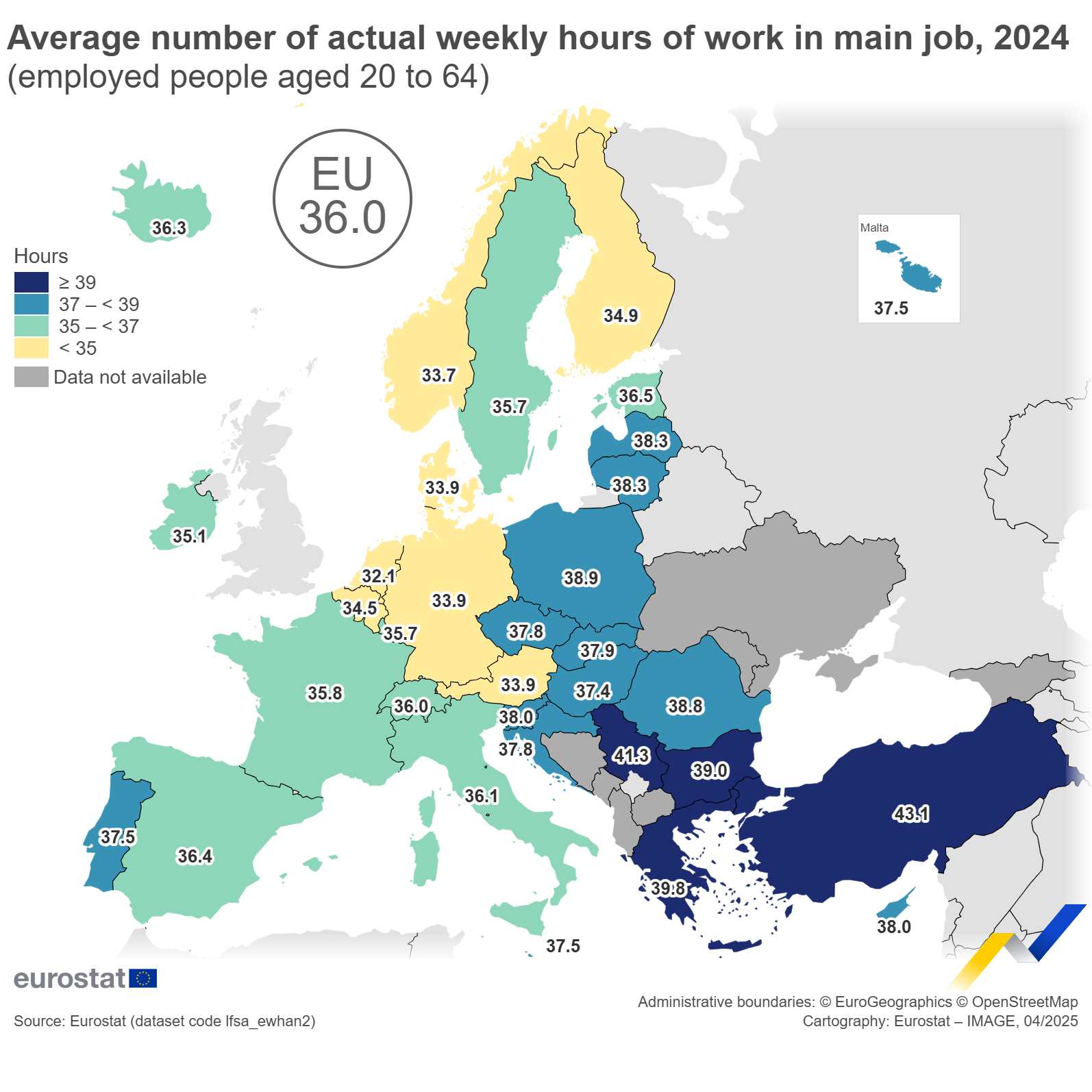People in Luxembourg work (slightly) fewer hours than their French neighbours, at least according to a recent Eurostat report published in May. The report is based on the average number of actual and usual weekly working hours in people’s main jobs in 2024.
Luxembourg below the EU average
In Luxembourg, the legal limit for weekly working time is 40 hours, five more than in France. Yet in 2024, French employees worked an average of 35.8 hours per week, compared to 35.7 hours for workers in Luxembourg.
Meanwhile, Belgian employees worked an average of 34.5 hours, and German employees even less, at just 33.9 hours per week.
The countries of the Greater Region all fall below the European Union average, which stands at 36 hours per week in 2024.

Source: Eurostat
Working hours vary by sector and occupation across Europe
Average weekly working hours vary widely depending on the economic sector. In 2024, the longest work weeks were found in agriculture, forestry and fishing (41.2 hours), as well as in construction (38.7 hours). On the other hand, the shortest weeks were seen in education (31.9 hours) and arts and entertainment (32.9 hours).
Looking at occupational groups, managers worked the most hours on average, 40.9 per week, followed closely by members of the armed forces, who worked 39.9 hours. By contrast, administrative staff, service, and sales workers had some of the shortest workweeks, averaging 34 and 34.7 hours, respectively.
The Eurostat report highlights key trends in working time for different categories of workers (men, women, part-time and full-time workers, employees and the self-employed) as well as across various industries and professions. For example, women are more likely than men to work part-time and therefore report fewer paid working hours. However, a 2019 MenCare study found that, in every region of the world, women actually work more hours than men overall, but much of their work remains unpaid. Cooking, housework, and caring for children or other dependents: these invisible responsibilities still fall largely on women’s shoulders and are rarely compensated.
All in all, working in Luxembourg clearly has its perks. Alongside generally higher wages, people here tend to work slightly fewer hours than the EU average. While the difference with France is slight, these figures confirm that the Grand Duchy offers a rare balance between economic performance and quality of life —a winning combination that continues to make Luxembourg a top career destination.
So, have we convinced you? Explore over 4,500 job opportunities in Luxembourg at Moovijob.com!

.png)


